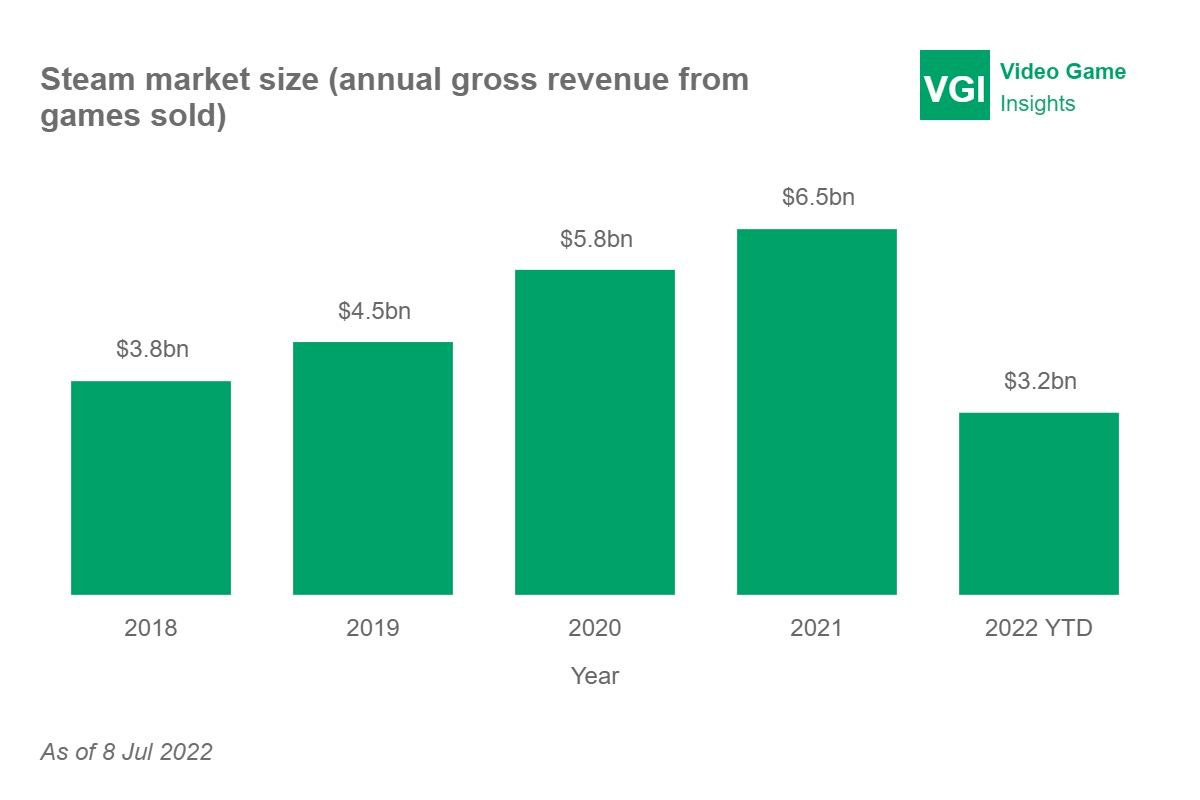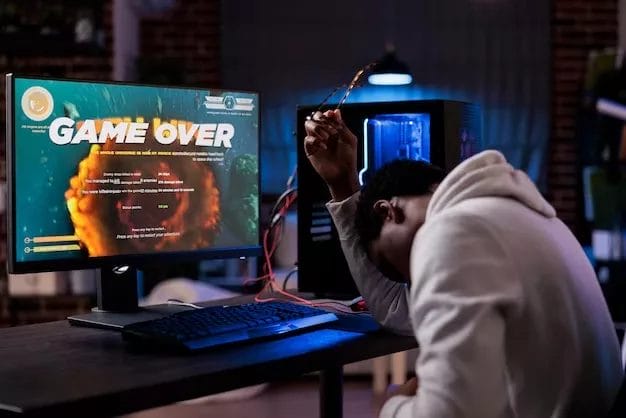Is Indie Game Development Profitable? The short answer: Yes, but only for a select few. While the indie game market generated over $7 billion in 2019, the harsh reality is that only 2% of indie games on Steam earn more than $10,000 in their first two weeks, and 80% of indie developers shut down within their first year.
What You Need to Know Right Now
The Good News:
- Successful indies like Minecraft, Stardew Valley, and Celeste have made millions
- The market is growing, with increasing demand for unique, creative games
- You have complete creative control over your projects
The Hard Truth:
- Average indie developer salary: $21,000 annually
- Only 3% of indie developers earn enough to support themselves full-time
- Most games take 1-3 years to develop with little to no income during production
Bottom Line: Indie game development can be profitable if you approach it strategically, have financial cushion to survive the development period, and possess skills beyond just coding—including marketing, business planning, and community building.
In this guide, we’ll break down exactly what it takes to be among the profitable minority, including real revenue data, monetization strategies, and the hidden costs most developers overlook.
In this article, we will explore various aspects of independent game industry and its game creators and try to answer this question.
The Basics of Indie Game Development
Indie gamedevs are those who create video games without the backing of a publisher or financial support from large companies. They are typically small teams or even solo developers who handle all aspects of creating a video game, from coding and programming to marketing and design. While developing an indie game comes with its fair share of challenges, one of the biggest advantages is creative freedom. Unlike traditional gaming companies that often prioritize profits over creativity, indiedevs have complete control over their creative vision.
The State of Indie Game Market
According to a report published by SuperData Research, the indiegames market generated over $7 billion in revenue in 2019. This is a significant increase from previous years and shows that there is a growing demand for unique and creative games.
This growth is a testament to the increasing demand for unique and creative games. However, while this is good news for indie game devs, there are some limitations that need to be acknowledged.

Games revenues in steam by VG INSIGHTS
One of these limitations is that the majority of revenue in the indie games market comes from a small number of successful games. In fact, according to SuperData Research, only 2% of indie video games on Steam earned more than $10,000 in their first two weeks on the platform. This means that while there is potential for significant profits from developing an indie game, it can be difficult to achieve financial success.
Another important stat is that 80% of the indiedevs will live for less than 1 year. A dramatic stat about the intensity of the competitivity with the games market and why manie indie developers close the doors before the year.
Furthermore, competition within the indie game market is intense. With so many independent developers competing for attention from players and publishers alike, it can be challenging for new studios to break through and establish themselves as successful players. It requires not only creativity but also strategic marketing efforts and business acumen to succeed in this highly competitive industry.
The Pros and Cons of Indie video game Development

One advantage is that communication between team members is often more efficient since indie studios tend to be smaller than major studios. However, it can be challenging for solo developers or small teams to compete with larger studios in terms of funding and manpower. Additionally, marketing an indie title can be difficult without proper financial backing or connections in the industry. Another advantage, is the ability to have creative control over the project. Unlike larger studios, indiedevs can choose to focus on a specific niche or target audience rather than creating a game that appeals to the broadest possible market. This can result in more unique and innovative game concepts.
However, videogame development also presents its own set of challenges and risks. There is often a high level of uncertainty surrounding financial success and the project’s overall reception by the gaming community. Additionally, the workload for indiedevs can be overwhelming, with many team members often juggling multiple roles and tasks.
Overall, it can be a rewarding experience for those with a passion for gaming and a desire to create something unique. However, it requires a significant amount of hard work, dedication, and perseverance to successfully launch an indie game.
The Profitability of Indie Game Development
Now, let’s address the elephant in the room – is it profitable? While there is no one-size-fits-all answer to this question, it is possible for indies to generate revenue from their titles.
Many successful indie videogames have grossed over $100k in revenue, and some have even made millions. However, it’s crucial for aspiring indie developers to thoroughly research their target market and plan out their monetization strategy before beginning development. One way indie developers can generate revenue is through selling their game on various platforms, such as Steam, GOG, or the App Store. They can also offer in-game purchases or charge for additional content in the form of DLCs or expansions. Another option is to seek funding through crowdfunding campaigns or investors, although this can be a more challenging route.
It’s essential to keep in mind that the indie gaming market is highly competitive, and success is not guaranteed. Developers must be willing to put in the time and effort to create a high-quality game that stands out in a crowded marketplace.
Additionally, marketing and promotion are crucial to building an audience and generating revenue.
In short, game development can be profitable if developers carefully consider their target audience, monetization strategy, and marketing efforts. While success is not guaranteed, there are plenty of examples of indie games that have found success and generated revenue. With hard work, dedication, and a bit of luck, independent game development can be a fulfilling and profitable venture.
Is Indie Game Development Worth It?
While indie gamedev can be a challenging and competitive field, it can also be very rewarding. Many indie games have gained critical acclaim and have become successful franchises, such as “Minecraft”, “Undertale”, and “Stardew Valley”.
Indie gamedev allows for more creative freedom compared to working at a larger game studio. This means that developers have the ability to create unique and innovative games that
can you continue?
may not have been possible under a larger company’s structure. Additionally, independent developers can work on their own schedules and are not beholden to the demands of a publisher or studio.
However, it’s important to note that the indie game business is not for everyone. It requires a great deal of dedication, hard work, and financial investment. Developers must be able to wear many hats, including programming, art design, marketing, and business management.
Monetizing Your Indie Game
The success of an indie game largely depends on its monetization strategy. This refers to the methods through which revenue is generated from the game. There are various ways to monetize a game such as selling it outright, implementing microtransactions, offering subscriptions, or displaying ads. Each method has its pros and cons and should be selected after considering various factors such as target audience, platform, budget, etc.
It’s also important to determine which platforms your game will be released on. Different platforms have different audiences and rules for publishing games. Choosing the right platform can help you reach more potential customers and increase sales.
Lastly, marketing plays a crucial role in attracting players to your game. A well-planned marketing strategy can help you generate buzz about your game before launch and sustain interest after launch. Effective marketing can help you reach a wider audience and increase your chances of success in the competitive gaming market.
The Number of Games and Income
It’s worth noting that the number of games that an indie developer makes does not necessarily correlate with income. While some indie developers have released many successful titles, others have only created one successful game in their career. Therefore, it’s essential to focus on creating high-quality content rather than churning out as many games as possible.
The Average Revenue Per Game
Another factor to consider when determining the profitability, of the creation of games, is the average revenue per game. According to VG insights, the average annual salary for an indie developer is around $21k, but this varies significantly depending on the success of each title. While some indies have earned hundreds of thousands or even millions from their games, others have struggled to make enough money to cover their development costs.
Do Indie Game Developers Make Money?
The short answer is yes, indie game studios can make money. However, success in this field is not guaranteed. According to a survey conducted by the International Game Developers Association (IGDA), only 3% of independent developers make enough money to solely support themselves or their team.
It’s important to note that creating a successful indie video game requires more than just talent and hard work. Developers must also consider marketing strategies, budgeting, and other business aspects in order to increase their chances of making a profit.
Independent game developers can make money by producing and selling their games through various platforms, such as Steam, the App Store, or Google Play. They can also generate revenue through crowdfunding, sponsorships, and partnerships with other companies.
However, the gaming industry is highly competitive and crowded, making it difficult for indie gamedevs to stand out from the crowd. Successful indie games often have unique concepts or captivating storytelling that sets them apart from other titles. Additionally, having a loyal fanbase can greatly increase sales and visibility for indie games.
Marketing strategies are crucial for indiedevs to reach their target audience. Social media platforms like Twitter and Instagram can be effective tools for building a following and sharing updates about game production progress. Developers may also consider attending gaming conventions or partnering with influencers to promote their game.
In addition to marketing efforts, budgeting is another important aspect of game development that development teams must consider. Creating a high-quality game requires investment in software licenses, art assets, music composition, and more. Developers must carefully allocate resources to ensure they have enough funding to complete the project while still turning a profit.
Overall, while there is potential for game creators to make money in the industry, it requires a combination of talent, hard work, strategic planning, and a bit of luck to achieve success.
How Much Money Does Indie Game Developers Make?
The amount of money that can be made varies greatly depending on factors such as the success of their game, its pricing strategy, and the platform it’s sold on.
Some indie games have made millions of dollars in revenue while others may only break even or make a small profit. Furthermore, developers often need to factor in expenses such as software licensing fees, equipment costs, and marketing expenses when determining their profits.
Ultimately whether or not indie gamedev is profitable depends on numerous factors. While there are no guarantees of success in this field those who are passionate about creating unique and engaging games may find that it can be both financially and creatively rewarding.
Indie Games vs. AAA Games
Indie Games are typically created by small teams or even individual developers without the backing of a major publisher. They often have more limited resources and budgets, but can still produce high-quality games with unique ideas and game mechanics. Indie games tend to focus on artistic expression, experimental game play, and storytelling that differs from mainstream triple A titles.
In contrast, the larger games are typically produced by large studios with significant financial backing from publishers. These games have much larger budgets and teams, allowing them to create cutting-edge graphics, immersive worlds, and expansive fun factor experiences. TRIPLE A games target a broad audience that includes casual gamers as well as hardcore enthusiasts.
Comparison Table
Here’s a quick table comparing some of the key differences between indie games and very budget games:
| Indie Games | AAA Games | |
|---|---|---|
| Budget | Low to moderate budget (often self-funded) | High budget (often backed by major publishers) |
| Team Size | Small team or even individual developers | Large team of hundreds or thousands of developers |
| Graphics & Visuals | Unique art style; simpler graphics compared to AAA titles but can still be visually impressive | Cutting-edge visuals; high-definition graphics with detailed textures and lighting effects |
| Game Content & Length | Often shorter game length due to limited resources | Expansive content with longer game length due to significant budget |
| Gameplay Mechanics & Innovation | Focus on experimentation and creativity; innovative gameplay mechanics | Polished mechanics supported by years of development time; most innovation comes in smaller areas within the game |
While both indie studios and AAA studios can produce successful video games that make money for their creators, they take different approaches when it comes to developing their products. Ultimately, it’s up to individual gamers to decide what kind of gaming experience they prefer.
Conclusion on Is Indie Game Development Profitable
In conclusion, whether or not indie gamedev is profitable depends on several factors such as the quality of your product and how well you market it. Success is not guaranteed in this industry; still, with hard work and dedication, it is possible for an indie developer to create a successful title that generates significant revenue.
This is increase of popularity can be directly linked the rise of digital distribution platforms such as Steam, Itch.io, and GOG. These platforms have made it easier for indie developers to self-publish their games and reach a wider audience.
However, with the increase in competition comes the need for developers to stand out from the crowd. This means that indie game production can be a risky and potentially costly venture. Developers need to invest time and resources in creating a unique and engaging game that will capture the attention of potential players through a cared and innovative game design and fun proposal to be delivered through coding, art and crafted design.
In addition to creating a great game, developers also need to consider pricing strategies. Setting a price that is too high may turn off potential players while setting a price that is too low may not cover expenses or generate enough profit or revenue per copy for the game entrepreneurs.
Marketing is another important factor in determining the success of an indie game. Developers need to effectively promote their game through social media, press releases, reviews, and other channels to attract players.
Despite these challenges, there have been many successful indie games such as Stardew Valley, Shovel Knight, and Celeste which have generated millions of dollars in revenue for their respective developers.
Overall, indie game creation can be both financially and creatively rewarding but requires careful planning, hard work, perseverance, and a bit of luck.
The world of indie game creation presents both daunting challenges and incredible opportunities. While it can be difficult to break into such a competitive and constantly-evolving industry, those who possess a genuine passion for gaming may find that the rewards are well worth the effort. With the freedom to explore their own creative vision and take risks outside of established norms, independent developers have the potential to create truly unique and unforgettable experiences for players around the globe.
Of course, success in this competitive market is far from guaranteed. It requires hard work, dedication, and a willingness to learn from one’s mistakes. But for those who are willing to put in the effort, there is no greater satisfaction than seeing one’s own creation come to life and resonate with an audience.
Whether you choose to pursue a career in the indie videogame industry or simply enjoy playing games as a hobby, it’s important to stay true to your vision and have fun along the way. After all, at its core, gaming is all about having fun and exploring new worlds – whether you’re on the player side or the developer side of things!
A game developer that wants to share its knowledge and experience with other game developers-





